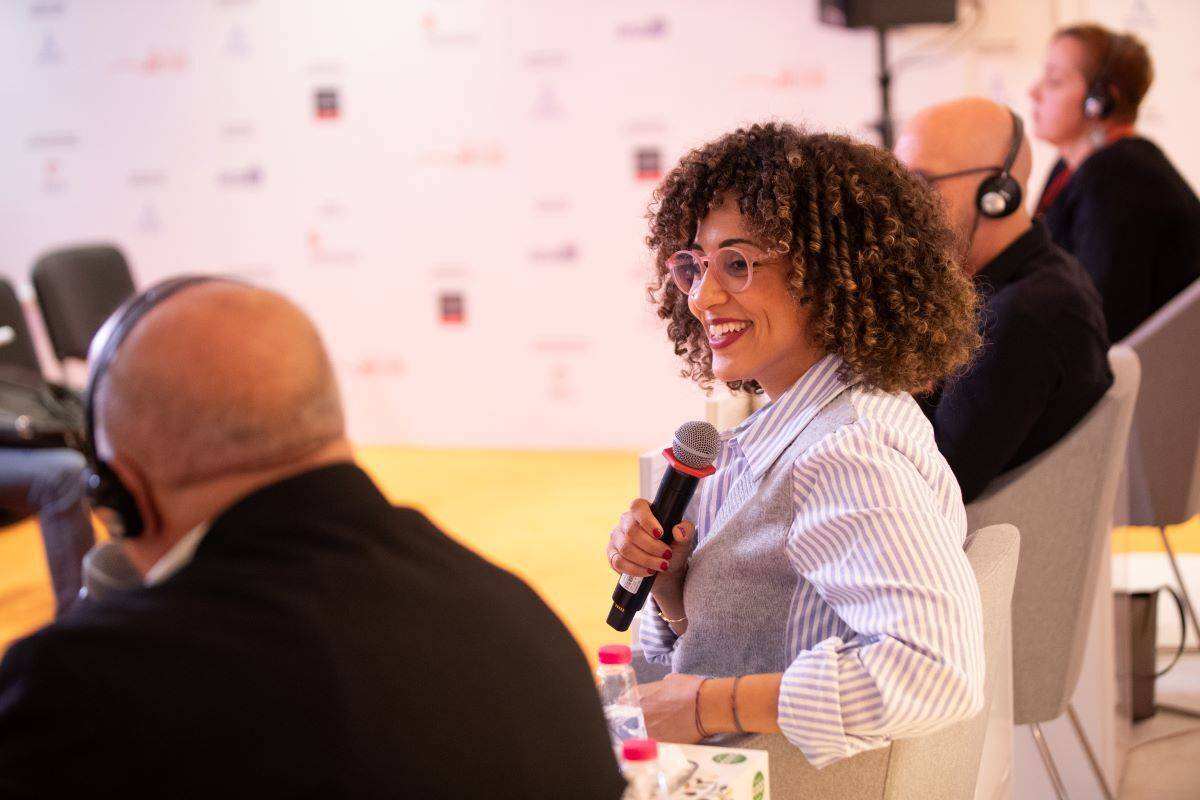The job as an editor is to form a truly intimate relationship (with authors), and forge a wonderful friendship. “I take on the role of a therapist and a teacher. I am also the steward of my author’s career for the long term, working on multiple books through the years, helping them decide what to work on next,” said American publishing stalwart Carrie Thornton, the Vice President and Editorial Director at Dey Street Books, a division of HarperCollins Publishers.
She was speaking at forum on the third day of the 41st Sharjah International Book Fair (SIBF).
The forum moderated by Layla Mohamed featured an esteemed panel of accomplished writers and publishers, namely; Mohammed Eissa al-Mu’adab, a Tunisian novelist and short story writer who won the 2017 Tunisian Golden Comar Prize for the Arabic Novel, Soft Jihad; Neil Strauss, an award-winning American author, acclaimed podcaster, and a life-long contributing editor at Rolling Stone; and Thornton.

Thornton, who has been behind the success of over 50 New York Times bestsellers, added, “I have two very important roles – the first, to be the mouth-piece for my authors in the publishing house, advocating for my author to my colleagues who are selling their books to the stores and distributors, and secondly, being a constructive critic, helping them produce their best work possible.”
“Anything that gets younger people to read is great in my book”, added Thornton, who elaborated how the social media platform TikTok has been vital in encouraging the younger generation to read and have interest in books, especially in the fiction category.
Neil Strauss expanded on the balance of being both a motivator and a pundit saying, “Editors are very good at delivering what I like to call a “compliment sandwich”. This is where we tell the author, ‘this is what I love about the book’, then we tear it apart, but reassure them that we really love their work.”
“Editors are very good at delivering what I like to call a “compliment sandwich”. This is where we tell the author, ‘this is what I love about the book’, then we tear it apart, but reassure them that we really love their work,” says Neil Strauss, an award-winning American author, acclaimed podcaster, and a life-long contributing editor at Rolling Stone.
The popular columnist added, “I would say the only reason I am a decent writer is because I had good editors and I think it rings true to anything you do in life – if you produce something in a vacuum, with no one telling you how to make it better, you don’t get better.”
Mohammed Eissa al-Mu’adab took the floor to explain his account of the editor/author dynamic and how it’s the editor’s job to take the role as the reader or public eye. He explained, “An editor is like a surgeon; we have to be precise with our criticism but also remain sensitive to our authors to give them constructive feedThe Tunisian writer added: “The reader of today is intelligent and does not accept any book, and the authors and publishing houses that will flourish are the ones that will value the guidance of their editor.”
Eissa al-Mu’adab ended with the point that it was important for authors to not be sensitive to criticism, and that they should trust in the guidance of their editors, saying this is a team sport and that great writers need great editors to create amazing books.

